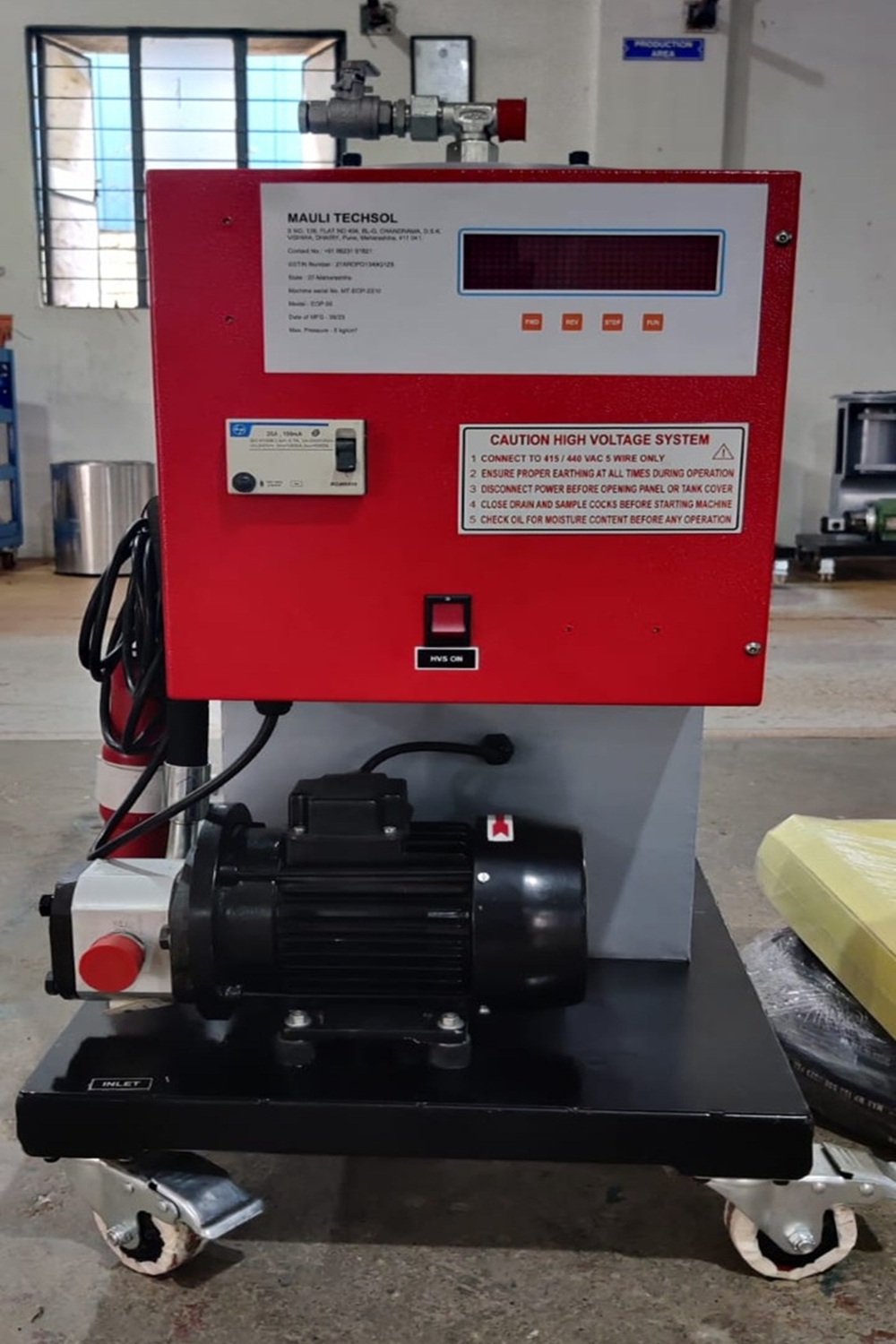Cartridge oil filtration machine
A mechanical filter oil filtration machine uses physical barriers, such as filter media (e.g., paper, fabric, or mesh), to remove contaminants like dirt, metal particles, and debris from oils, including hydraulic, lubricating, transformer, or cooking oils. These machines are widely used in industrial, automotive, and food service applications to extend oil life, improve equipment performance, and reduce maintenance costs. Unlike electrostatic oil purifiers, which use electric fields to capture submicron particles and varnish, mechanical filters rely on pore size and are more effective for larger particles (typically 1–10 microns and above).
📏Key Features
- Filtration Mechanism: Oil is pumped through filter media that traps contaminants based on size. Common media include cellulose, synthetic fibers, and stainless steel mesh.
-
Types of Filters:
- Depth Filters: Use thick media to trap particles throughout the filter (e.g., Kleenoil’s wood pulp cartridges).
- Surface Filters: Trap particles on the filter surface (e.g., filter bags or screens).
- Filter Presses: Use plates and cloths for high-volume filtration (e.g., edible oil processing).
- Contaminant Removal: Effective for solid particles, larger debris, and some water. Limited for submicron particles and varnish compared to electrostatic systems.
🔧Applications
- Industrial: Used in hydraulic systems, turbines, gearboxes, and compressors to extend oil life and improve performance.
- Food Service: Fryer oil filtration systems remove crumbs and sediment, extending oil life in food preparation.
- Power Generation: Transformer and turbine oil purification to ensure optimal operation and reliability.
🔩Components
- Pump: Typically 1/3–1/2 HP.
- Filter Housing: The container that holds the filter media.
- Filter Media: Options include bags, cartridges, or plates.
- Mobile Cart: Often comes with wheels for easy portability in various applications.
